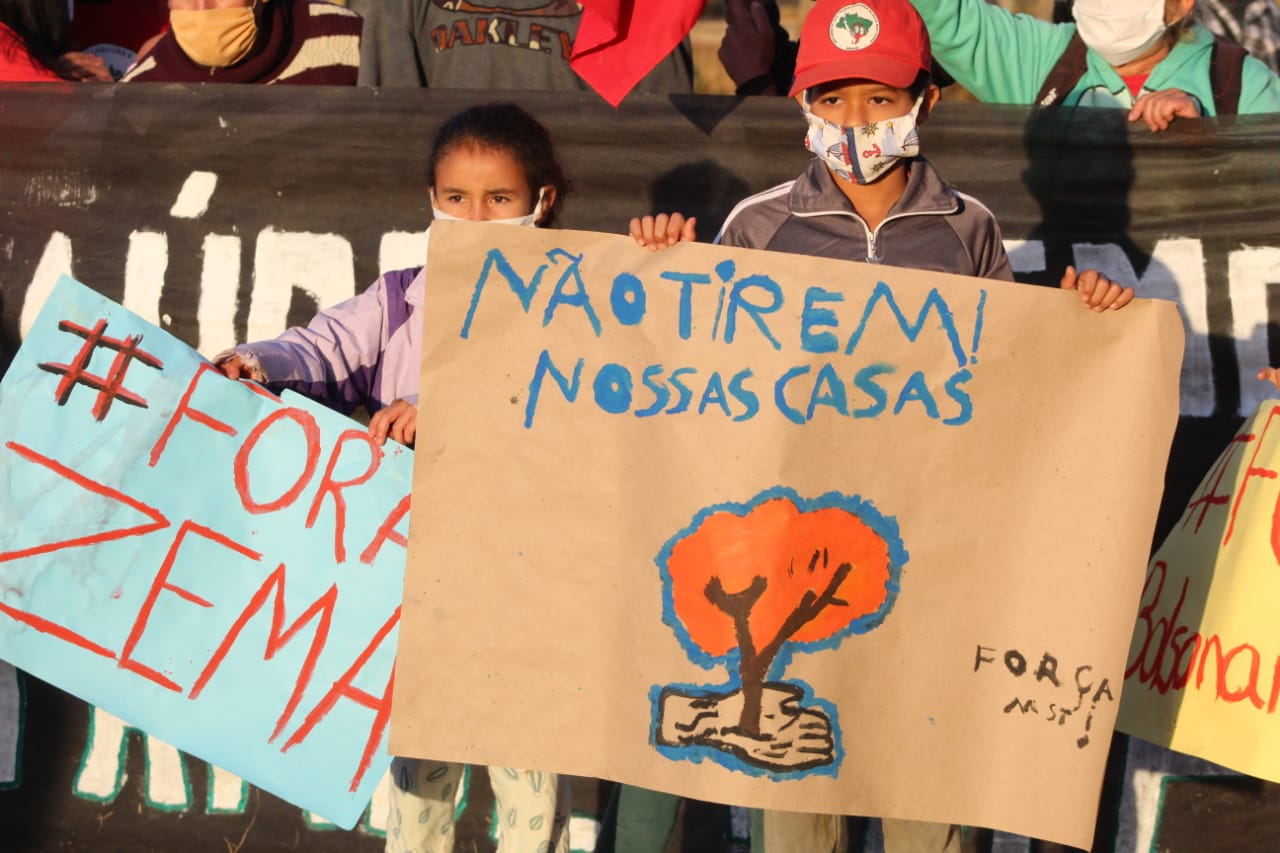RIO DE JANEIRO, BRAZIL – In Brazil, ongoing clashes erupt after the violent eviction of an agricultural workers’ settlement in the state of Minas Gerais a week ago.
Hundreds of police officers, some of them heavily armed, surrounded the Campo Grande settlement in order to evict the 450 families living in the area. They had been living there on occupied land for over 20 years.
With such land occupations, landless rural families are fighting against the unequal ownership situation. The government of President Jair Bolsonaro is a fierce advocate of the interests of big landowners. Bolsonaro and representatives of his camp have repeatedly advocated and promoted the use of violence against landless activists.

According to the Landless Rural Workers’ Movement (MST), the first attacks on the settlement by around 150 police officers began on July 30th.
In the Campo Grande settlement, a former sugar cane priducing plantation, rural workers’ families have been living for over two decades, producing corn, coffee, and food mainly for cooperatives. Vegetables are cultivated on 40 hectares, while the settlement contains some 60,000 native trees and 60,000 fruit trees. The settlers have also set up a school.
The occupied land has been the subject of a repossession action by the owners of the plantation for the past two decades, and in July a court issued an eviction order. The settlers dispute the order, saying that it should have applied to only part of the plantation – which they have already left – not to the entire property.
When the police attack began, drones and helicopters flew over the area, presumably to take aerial photographs. Subsequently, the police began to search houses and arrest residents. All such actions by the police and specialized anti-riot units were conducted without a valid court order.
The MST blames the governor of Minas Gerais, Romeo Zema, for the escalation. Zema had announced on social media that he had issued an eviction order. The police immediately began demolishing the school – named after the far-left Uruguayan writer Eduardo Galeano – with excavators, and setting fire to buildings and fields. On social media, the hashtag #zemacovarde (“Zema coward”) spread.
The displaced families were accommodated and given first aid by the MST in a nearby settlement. Tuira Tule, an activist of the organization, sharply criticized the police action. According to her, such attacks are now a daily routine for the landless population. Not even the coronavirus pandemic, which is raging in Brazil, has changed this, she said. Tule voiced serious accusations against “the fascist government” of Jair Bolsonaro.
Despite the fact that all social institutions were aware of this eviction, none of the appropriate authorities intervened to protect the families and their homes, she complained. Such eviction in the midst of a serious pandemic is all the more serious. “But we are constantly learning and will emerge stronger from this. This land is rightfully ours and we have not given up an inch of it,” she added.
In addition, the MST denounced attempts by the security authorities to criminalize the rural workers. A police statement said that “a machete and fireworks” had been confiscated on the premises, and a person had been arrested for resisting law enforcement officers.
The Archbishop of Belo Horizonte and President of the National Episcopal Conference of Brazil (CNBB), Walmor Oliveira de Azevedo, has sent a solidarity and observation mission to the Campo Grande settlement. The Catholic Church expressed its solidarity with the families affected and spoke out in favor of dialogue in order to maintain social peace, he said. Concurrently, support rallies took place throughout Brazil, which were documented on the MST website.
The US linguist and radical left philosopher Noam Chomsky and the Indian historian Vijay Prashad sent a statement of solidarity to the 450 families in the Campo Grande settlement. Chomsky and Prashad deplore the eviction and in particular the destruction of the Eduardo Galeano primary school. “As friends of Eduardo Galeano (1940-2015), our conscience is troubled by the eviction and destruction in South America,” the letter said.

